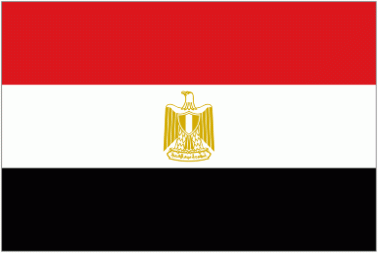I’m shaking my head in disbelief. After submitting an article on Joseph Kony for publication, I thought I’d developed quite a thorough insight into the position of major international organisations and world powers towards warlords accused of horrific atrocities. Then, earlier tonight, I turned my attention to Channel 4 News and felt like a damn fool. Who on earth, I ask myself, is Bosco Ntaganda, aka “The Terminator”? And why haven’t I even picked up on this notorious rogue leader until now? I blame myself for remaining ignorant; I could take the easy way out and blame “the media”, but I know that I could, and should, have done more to find out before now.
Bosco Ntaganda was indicted by the International Criminal Court for war crimes in 2006, though his arrest warrant was only made public in April 2008. The parallels between Ntaganda and Joseph Kony are uncanny: child soldiers were abducted to fill his ranks; civilians massacred, raped, and mutilated – all under his orders as chief of military operations for a militia group during internal conflict in the north-east Democratic Republic of Congo. Yet, in sharp contrast to Kony, he’s been hiding in plain sight ever since.
Ntaganda stands accused of “the enlistment, conscription and active use of children in 2002-3” in the northeastern district of Ituri, when he headed the military operations of an ethnic Hema militia group, the Union of Congolese Patriots (UPC). Note – he was a close associate of Thomas Lubunga, a fellow Congolese rebel leader who became the first recipient of a verdict from the ICC; he was found guilty of conscripting child soldiers into the UPC) in 2009 and is yet to be sentenced.
After leaving the UPC in 2006, Ntaganda assumed his current position as military chief of staff of the National Congress for the Defense of the People (CNDP) in the Congo, led by Laurent Nkunda. According to Human Rights Watch:
The CNDP is considered responsible for serious abuses against civilians in the North Kivu province of eastern Congo. But on January 23, 2008, the Congolese government signed a peace agreement in Goma, North Kivu, with 22 armed groups, including the CNDP. Under its terms all parties agreed to an immediate ceasefire and committed to respecting international human rights law…
… Ntaganda is the fourth Congolese rebel leader sought by the ICC for war crimes. Three other Congolese defendants – Thomas Lubanga, Germain Katanga, and Mathieu Ngudjolo – are already in ICC custody.
Special envoys from the African Union, the European Union, the United States, the United Nations, and the International Conference on the Great Lakes Region played a vital role in brokering the Goma peace agreement. A number of these diplomats meet regularly with CNDP representatives as part of the peace process. Human Rights Watch urged them to use their influence to pressure CNDP officials to swiftly hand over Ntaganda to the ICC.
Unfortunately, efforts to arrest Ntaganda and put him on trial in the Hague have failed to bear fruit. As Channel 4’s Jonathon Miller explains:
…since the arrest of Lubanga in 2005, forces under the command of Bosco Ntaganda are accused of mass killings during a rebellion three years ago – according to a United Nations report.Yet today, General Bosco lives openly in the eastern city of Goma where he is in charge of 50,000 Congolese soldiers. The 17,000 UN peacekeepers stationed in the country are powerless to apprehend him. Their spokesman told us they cannot arrest him without an order from the president. As a signatory of the ICC, Congo is legally obliged to arrest a suspect indicted by the court.
But President Kabila has not done so… Witnesses and victims who have spoken to Channel 4 News accuse General Bosco of continuing to rape, torture, murder and recruit child soldiers – a reign of terror which, they say, carries on to this day. The ICC is aware of these allegations…
Under a peace deal which ended the 2008 rebellion, Bosco Ntaganda’s forces were reintegrated into the Congolese national army. He was promoted to the rank of general in January 2009 and was, say well-placed sources, instrumental is getting President Joseph Kabila re-elected at the end of last year, by securing votes in the east.
“Bosco Ntaganda is a man at the peak of his power at the moment,” said Anneke van Woudenberg of Human Rights Watch.
“He drives around Goma without a care in the world. He goes to the top restaurants. He plays tennis. He shows up at his office. He wines, he dines. This is a man who doesn’t think anyone is ever going to lift a finger to arrest him.”
Unbelievable. Perhaps I’m just incredibly naive, but it frustrates me beyond belief that this is the way the world works. The whole affair gives a very dark sheen to the concepts of bureaucracy and diplomacy, and casts a dark shadow on the whiter-than-white image of Western citizens promoted in the Kony 2012 campaign. This all feels, to me, like a long-overdue wake-up call.


